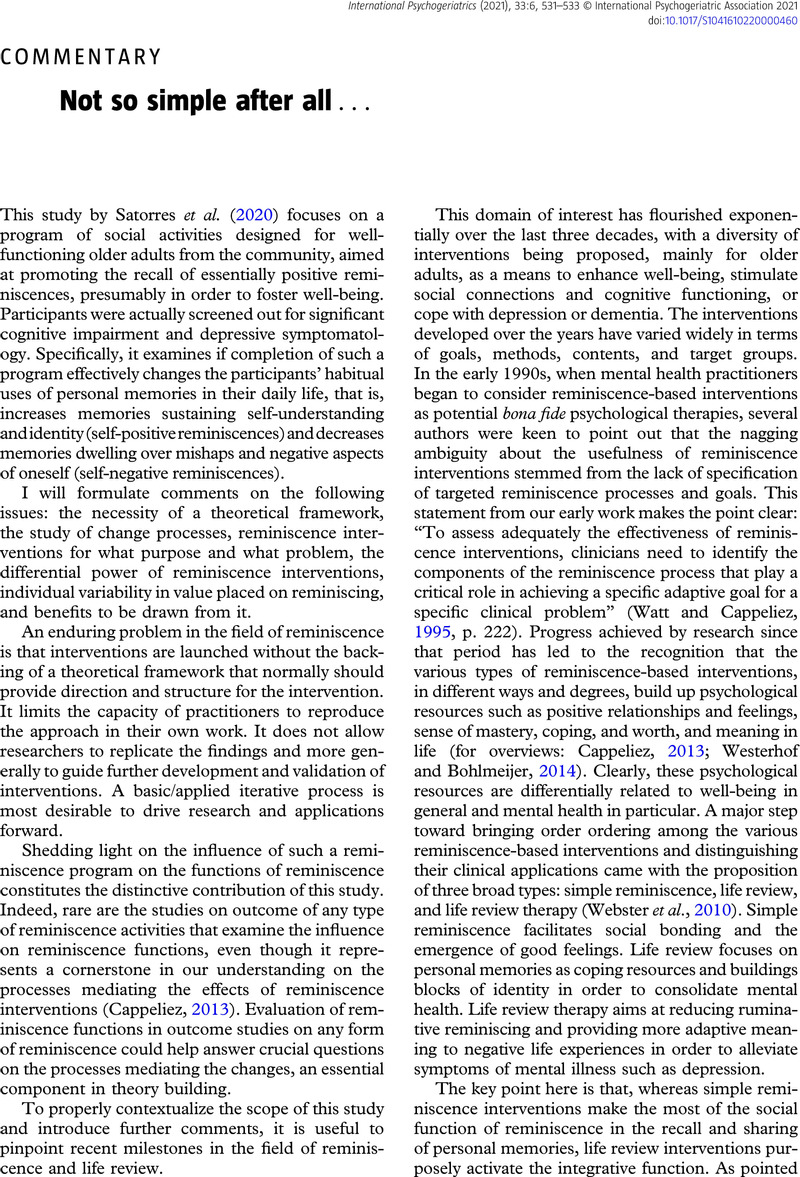Crossref Citations
This article has been cited by the following publications. This list is generated based on data provided by Crossref.
Yang, Yuxuan
Graf, Leah
Longdin, Madisyn
Khait, Abdallah Abu
and
Shellman, Juliette
2022.
Scoping review of reminiscence research undertaken in long-term care communities.
Geriatric Nursing,
Vol. 46,
Issue. ,
p.
191.


